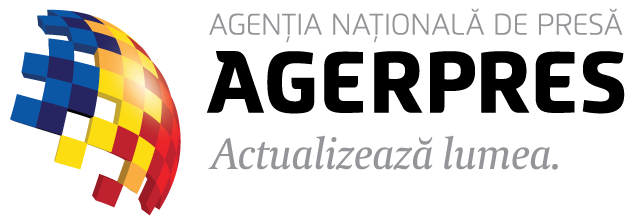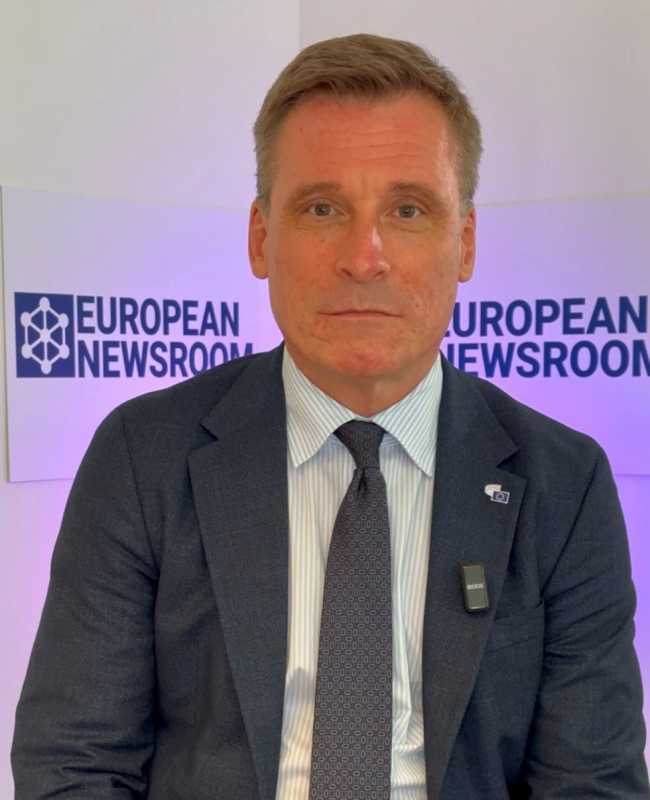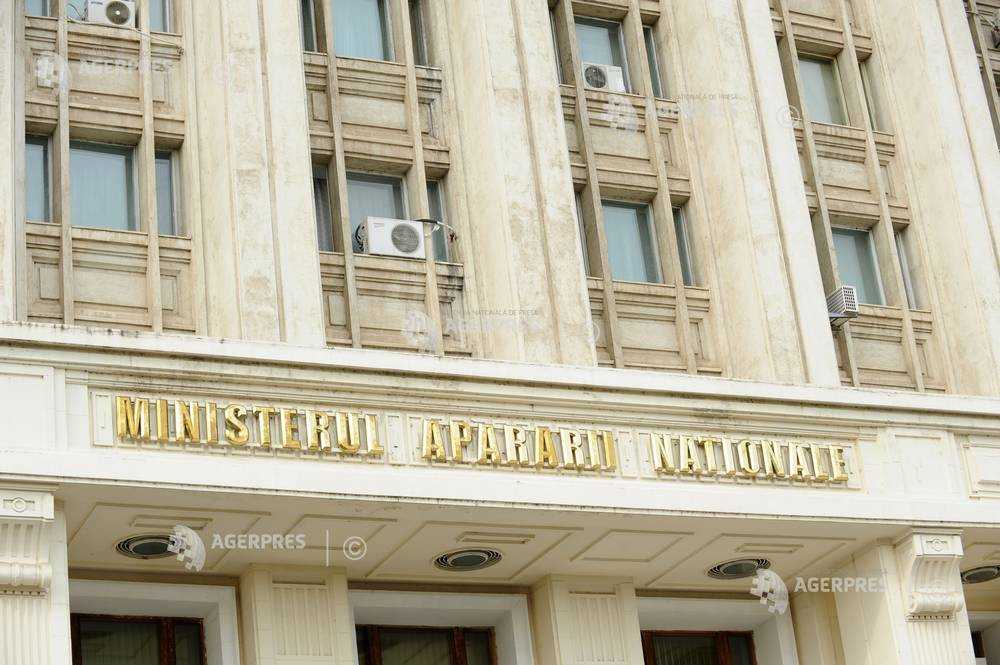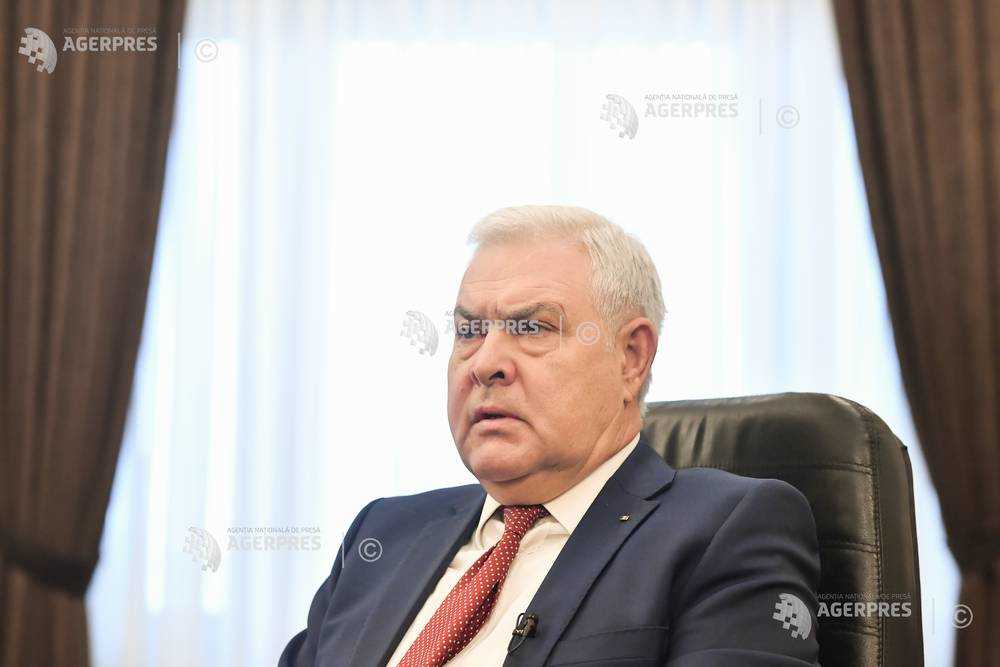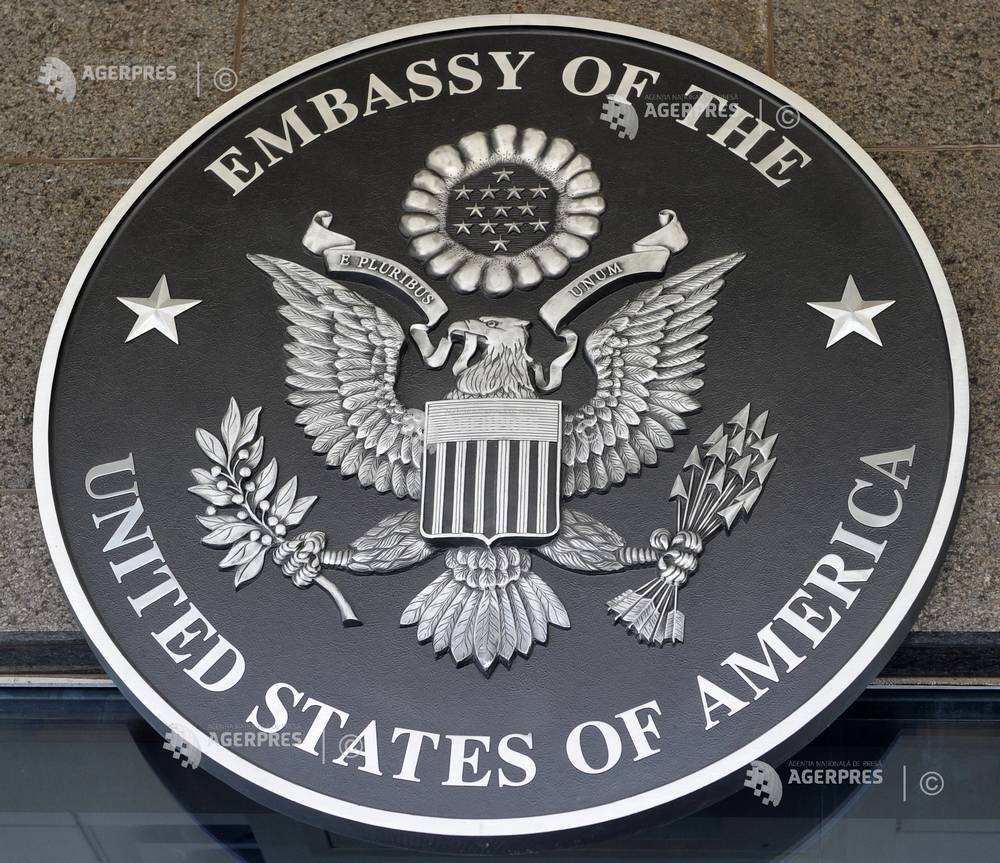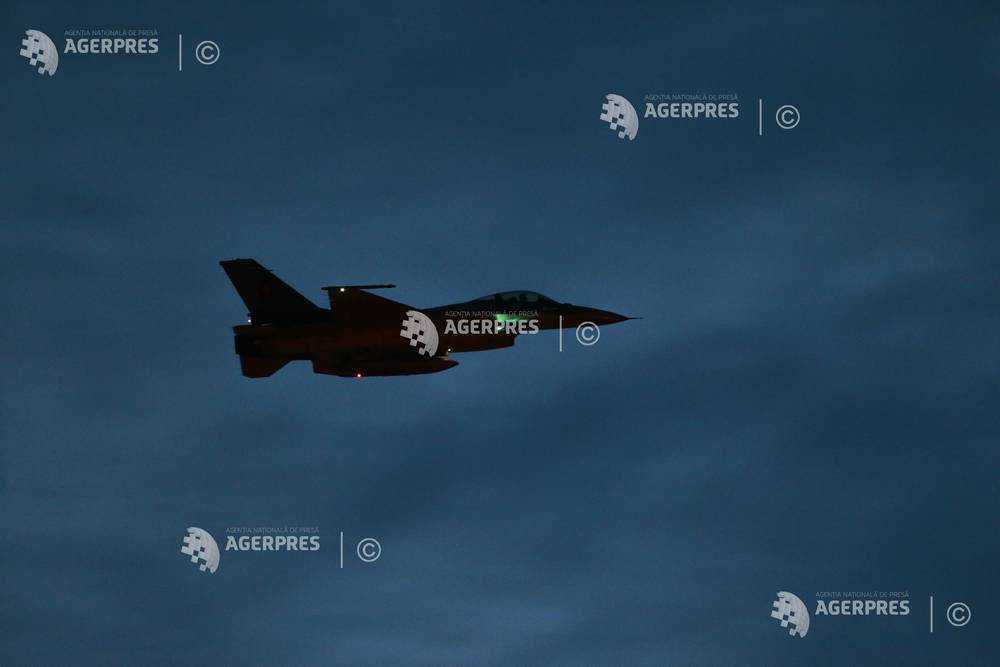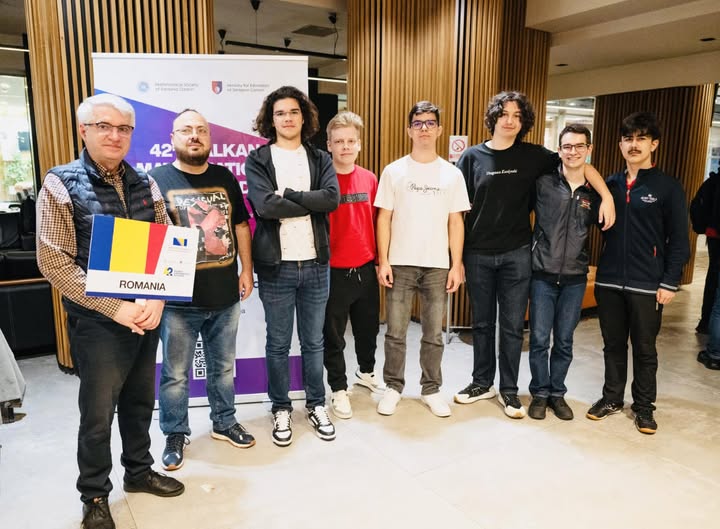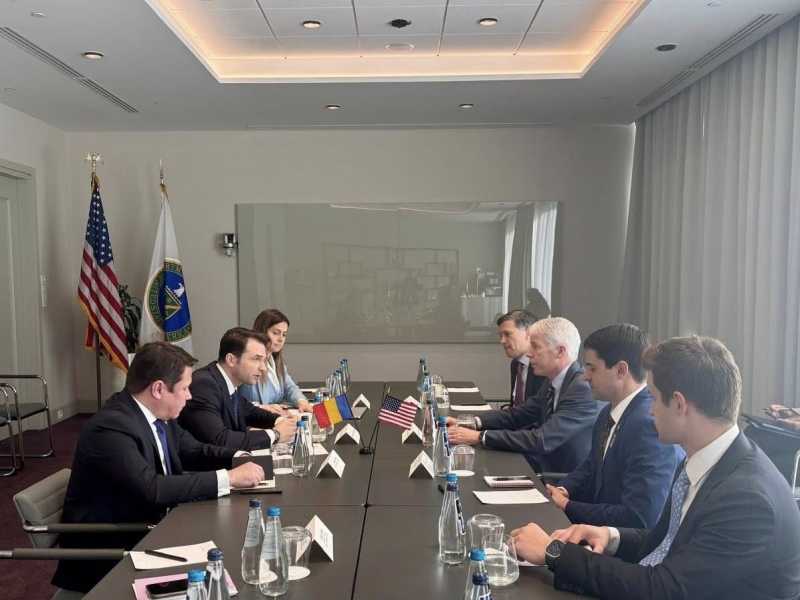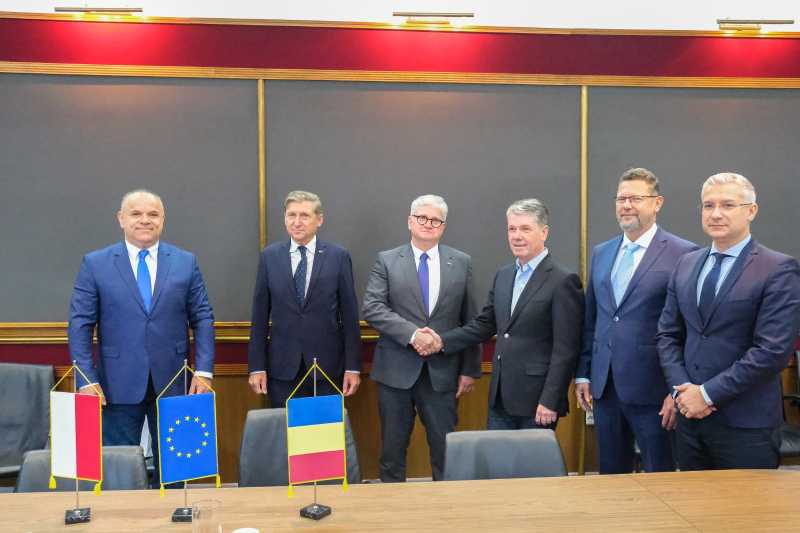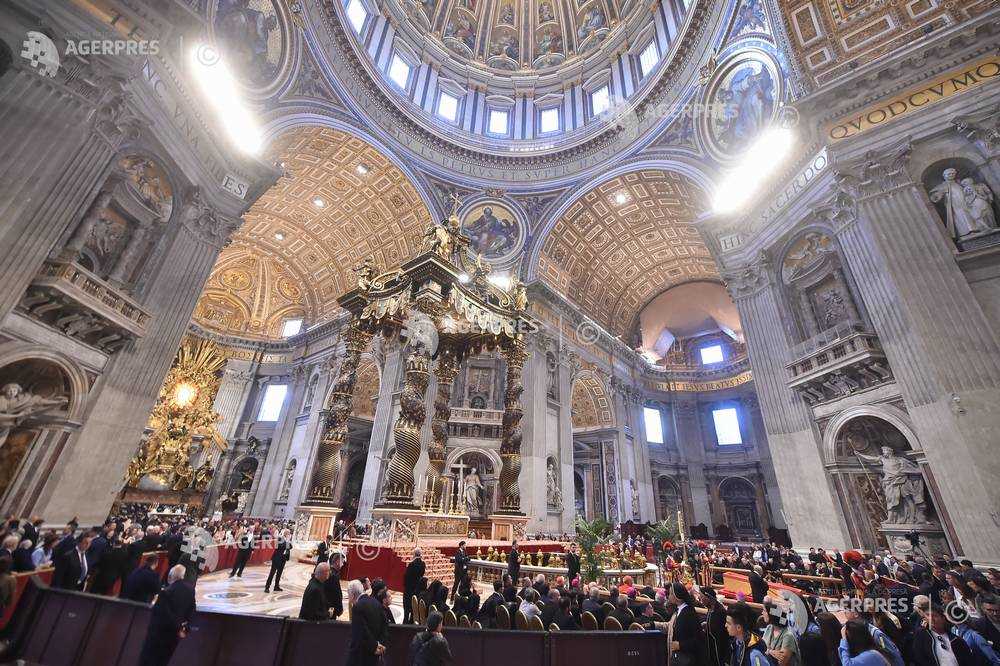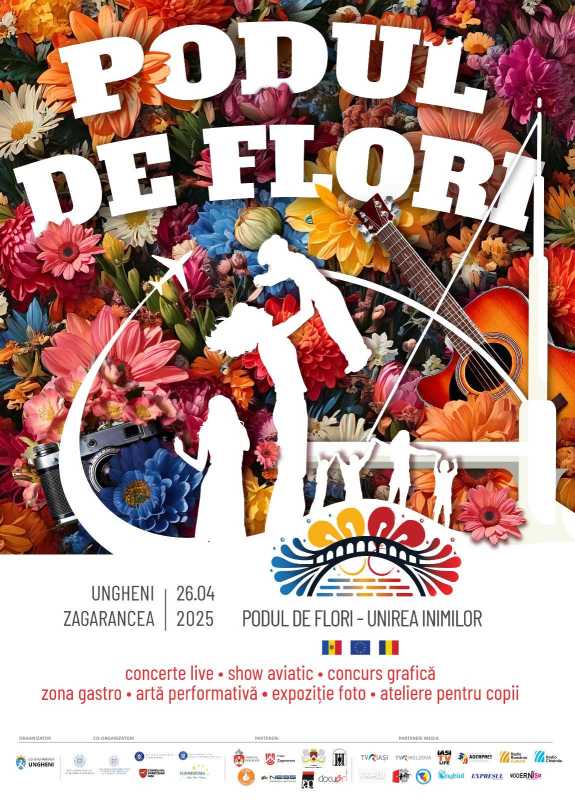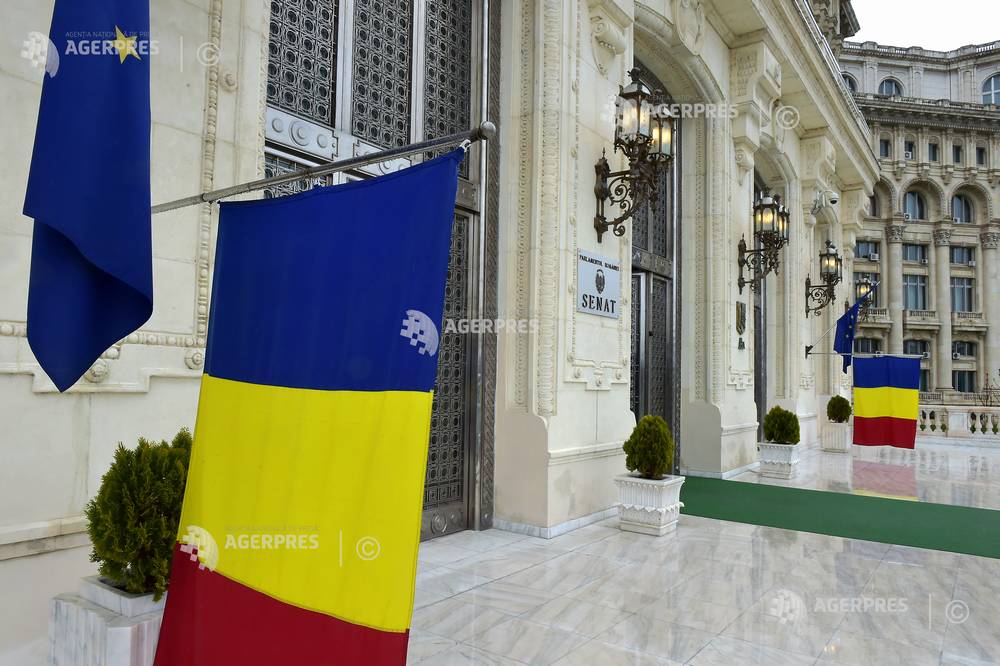Can the EU win in the rare earths game? (enr)
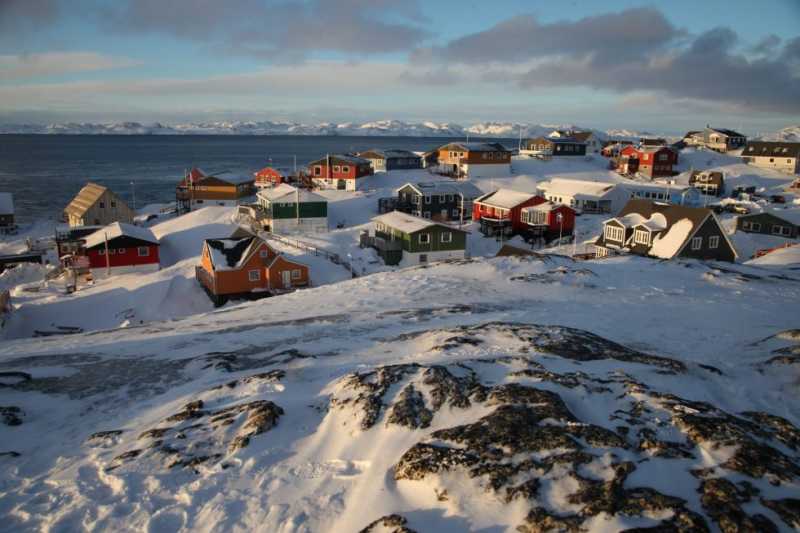
Brussels, March 26 /Agerpres/ - Scandium, beryllium, gallium: Raw materials such as these have been the subject of many headlines and threats to take over territories by Trump. But why are these materials that hardly anyone can name so important for the global economy? And what is the EU doing to secure its supply?
Rare earths and critical raw materials: the European Union needs these to push forward its strategic economic agendas. However, the 27-nation bloc is highly dependent on countries such as China for imports.
First things first: What kind of materials are we talking about?
The European Union has identified 34 critical raw materials (CRM). Out of those 34 entries, 17 are classified as strategic raw materials (SRM). This list includes materials such as cobalt, copper, tungsten, lithium and nickel.
Critical raw materials are of high importance for the EU's economy. For them, there is a high risk of supply disruption: Their sources are highly concentrated and there is a lack of good substitutes. 'Some of these elements are more or less irreplaceable, or at high cost,' said John Seaman, a researcher at the French Institute of International Relations (Ifri).
The SRMs are not to be confused with rare earths. Rare earths are a group of 17 chemical elements. They are mostly metals and some of them are not even that rare. The group contains elements such as cerium, europium, erbium and yttrium. All rare earths are part of the EU's list of CRMs.
'The more demand grows for these raw materials, the more people look for them and the more they find. The problem lies more in the relationship between extraction costs and market prices,' Seaman said.
Why does the EU need them?
Back in May 2024, the European Critical Raw Materials Act entered into force. With it, the EU aims to strengthen its strategic economy by increasing and diversifying its supply.
The act sets some benchmarks for domestic capacities along the strategic raw material supply chain to be reached by 2030: 10 percent of the EU's annual needs for extraction; 40 percent for processing and 25 percent for recycling. No more than 65 percent of the EU's annual needs of each strategic raw material at any relevant stage of processing should come from a single third country.
Demand is expected to increase sharply in the coming years, as critical raw materials and rare earths are essential for the EU's plans to move away from fossil fuels. Essential components of the EU's green transition, such as batteries or solar panels, need these raw materials. Likewise, they are part of industrial supply chains, and are used to make common products such as mobile phones work. They are also needed to develop strategic technologies in sectors such as defence.
One example: The Commission expects EU demand for lithium batteries, which power electric and energy storage vehicles, to increase 12-fold by 2030 and 21-fold by 2050, compared to current figures.
The EU's demand for rare earth metals, used in wind turbines and electric vehicles, is expected to increase five to six times by 2030 and six to seven times by 2050.
The Commission is planning to support a range of almost 50 projects and companies in the member states to reach its goals for the supply, processing and recycling of CRMs.
The European Commission on Tuesday published a list of 47 'strategic projects' which include opening mines for lithium and tungsten in its efforts to reduce its over-reliance on China.
Are there supplies within the bloc?
The EU can only rely on its member states for a fraction of its needs for some CRMs. There are currently no rare earths elements mined in Europe, although some deposits are known.
Portugal for example has the largest lithium reserves in Europe, the eighth largest in the world, and is the only significant producer in the EU. The extraction of it has been contested by local communities in Portugal.
The Spanish Confederation of Mineral Raw Materials Industries (Primigea) believes that Europe urgently and rapidly needs to conduct exhaustive geological research in order to regain the autonomy that it has lost due to its 40 years of dependence on foreign resources. According to the confederation, Spain is among the countries with the greatest potential for mining key raw materials.
It is the EU's second largest producer of copper and manganese. Under pressure from Brussels, which wants to strengthen its industrial autonomy, the Spanish government has just presented a plan to accelerate exploration of its subsoil. 'Spain has a very rich subsoil,' particularly in terms of 'strategic minerals', emphasised Ester Boixereu, a geologist at the Geological and Mining Institute of Spain (IGME).
Though again, extraction is met with resistance by local populations, concerned about the nuisances and environmental impact of these projects, particularly related to their high water consumption and the use of chemicals to recover metals contained underground.
The revival of the sector will increase 'the risk of accidents' and worsen 'the social and environmental impacts inherent in extractive activity', the environmentalist group Friends of the Earth recently criticised, denouncing a 'lack of transparency' from the authorities.
Where does the EU import raw materials from?
The EU currently sources most of its critical raw materials from outside the bloc. For example Türkiye provided 98 percent of the EU's boron as of 2024, and China a whopping 100 percent of the EU's supply of heavy rare earth elements, such as europium, terbium or yttrium.
For its part, South Africa is responsible for supplying 71 percent of the EU's needs for platinum metals.
Another important supplier is the Democratic Republic of Congo: 63 percent of the world''s cobalt, used in batteries and high-strength light alloys for the defense and aerospace sectors, comes from the war-torn state.
The EU has tried hard to diversify its sources, but has met with mixed success.
In 2024, the Commission signed a memorandum of understanding (MOU) with Rwanda on critical raw materials. The hope for Brussels was to reduce its dependence on China for raw materials such as lithium, tin or gold. Rwanda would get funding to develop mining operations.
However, there have been controversies from the start as Rwandan fighters have been involved in conflicts in a minerals-rich border region in neighbouring Democratic Republic of Congo. Due to the military escalation in North Kivu, the European Parliament in February called for a suspension of the MOU.
Belgium has lobbied intensively to impose sanctions on Rwanda over its support for the M23 rebel group in the Democratic Republic of Congo and suspend the MOU. The Commission however argues that a suspension would be counterproductive. Meanwhile, Rwanda decided last week to sever diplomatic relations with Belgium.
Are Greenland and Ukraine the answer?
Greenland's resources have been the focus of US desires. President Donald Trump's talk of taking over the autonomous Danish territory has raised alarm bells in Copenhagen and Brussels.
Greenland's subsoil contains lithium and graphite for batteries and rare earth elements. Greenland's rare earths are estimated at 36.1 billion tons by the Geological Survey of Denmark and Greenland (GEUS).
Despite the great interest in the minerals and raw materials found in the mountains and bays of Greenland, the number of mining projects in the pipeline is quite limited, according to Jakob Klove Keiding, Chief Consultant at GEUS's Department of Mapping and Mineral Resources.
'The companies all have ambitions to start a mine, but not many projects are close to being realised,' he says. The industry only accounts for about 1 percent of Greenland's economy. Greenland remains almost entirely unexploited, and its minerals are seen as a potential springboard to independence, a goal backed by a majority of the island's 57,000 inhabitants.
In reality it is a long way from an exploitation licence to profitable production. Administrative challenges, difficult Arctic conditions and the limited infrastructure in Greenland, among other things, make it difficult to make money from extracting the raw materials.
Looking further east, the Commission has described Ukraine as 'a potential source of more than twenty critical raw materials'.
The country produces three critical minerals in particular: manganese, titanium and graphite, essential for electric batteries. Of the latter mineral, Ukraine accounts for '20 percent of the estimated global resources', notes the French Bureau of Geological and Mining Research (BRGM)
In Ukraine's subsoils there is an expected reserve of several billion tons of rare earths but also other strategic materials such as graphite or lithium. Much of these deposits are however located in the Russian-controlled eastern region of the country.
Ukraine is close to signing an agreement on minerals with the US. 'One of the things we are doing is signing a deal very shortly with respect to rare earths with Ukraine, which they have tremendous value in rare earths, and we appreciate that,' Trump said a few days ago. He has been pressuring President Volodymyr Zelenskyy to sign economic deals to compensate the United States for its support in resisting Russia's invasion of Ukraine.
The EU had tried to get in on the minerals game with Ukraine back in 2021 when they launched a strategic partnership on raw materials. Russia's invasion in 2022 put a stopper on putting the plans into practice. Afterwards, it failed to establish a mutual framework, so now the bloc is late to the party.
France also said in late February it was in discussions with Ukraine to access its mineral wealth, including for military use. The France-Ukraine talks started in October and were led by both countries' defence ministries, Defence Minister Sebastien Lecornu said.
Unlike Trump, France was not seeking any payback in the form of minerals from Ukraine for aid granted in support of Kyiv's war against Russia, he said.
The content of this article is based on reporting by AFP, ANSA, Belga, dpa, EFE, LUSA, Ritzau, as part of the European Newsroom (enr) project. AGERPRES (editing by: Mariana Ionescu)
The content of the www.agerpres.ro website has the exclusive purpose of public informing.
All the information published on this website by AGERPRES is protected by relevant legal dispositions.
It is forbidden to copy, reproduce, recompile, decompile, distribute, publish, display, modify, create derived components or products or full services, as well as any exploitation of the site's content.
Details in the section Terms of Use. If you are interested in picking up AGERPRES news items, please contact the Marketing Department – [email protected].
The use of the Comments section entails your obligation to respect the AGERPRES terms and conditions in regards to the publishing of comments on the www.agerpres.ro.
Other news in category
Enforcement of rules key to battling disinformation, EESC president argues (enr)
Disinformation is an ever-growing danger to democracy, with campaigns often targeting vulnerable groups, the EESC's President Ropke says. Oliver Röpke, President of the European Economic and Social Committee (EESC), warns of the dangers posed by disinformation and artificial intelligence (AI) to democracy and civil society in the European Union.
Romanian Army to acquire new Patriot system from the US using non-reimbursable funds
The leadership of the Ministry of National Defence welcomes the decision of the US State Department to approve the sale to Romania of a long-range surface-to-air missile system (HSAM) - Patriot, through the Foreign Military Sales (FMS) security assistance programme, and the notification, in this regard, of the US Congress, according to standard American procedures.
President Bolojan: Romania is keen to further strengthen bilateral relation with Canada
Acting president Ilie Bolojan congratulates Canadian PM Mark Carney on winning the parliamentary elections. 'Congratulations to Canadian Prime Minister Mark Carney on winning the elections! Romania looks forward to continuing the dynamic development of our bilateral relations and working together for a strong partnership in the fields of economy, energy, s
DefMin Tilvar meets EP president Roberta Metsola on the sidelines of his official visit to Brussels
The minister of national defence, Angel Tilvar, had a bilateral meeting with the president of the European Parliament, Roberta Metsola, on the sidelines of his official visit to Brussels on Monday. According to a press release of the Ministry of Defence sent to AGERPRES on Tuesday, during the discussions, the Romanian official highlighted the essential role of
US Embassy: State Department approves sale of MIM-104 Patriot launcher to Romania
The US State Department has approved the sale of a MIM-104 Patriot firing unit to Romania, the US Embassy in Bucharest announces, indicating that this firing unit will replace the system that our country supplied to Ukraine in September 2024. According to the cited source, the MIM-104 Patriot system includes an AN/MPQ-65 radar set and two M903 launch stations.
MApN: Drone attack in Ukraine, near Romanian border, RO-ALERT message for population of Tulcea
A RO-ALERT message was sent on Monday night to the population of Tulcea county, in the context of the drone attacks by Russian forces on civilian and port infrastructure targets in Ukraine, near the Romanian border, with two F-16 aircraft of the Romanian Air Force and two Eurofighter aircraft of the Italian Air Force carrying out surveillance and protection missions over Rom
Romania's team ranks first in the Balkan Mathematical Olympiad (BMO)
The Romanian team ranked first, after winning four gold medals and two silver, at the Balkan Mathematical Olympiad (BMO), which takes place April 25-30, in Sarajevo, Bosnia and Herzegovina, the Ministry of Education and Research informed on Monday evening. Students Emanuel Mazare from the 'Alexandru Odobescu' National College in Pitesti, Radu Stoleriu
Romania, U.S. sign memorandum on green energy storage through pumped storage hydropower plants
Romania's Hidroelectrica and the National Renewable Energy Laboratory (NREL) - U.S. Department of Energy have initialled a memorandum that puts Romania at the forefront of Europe in the storage of green energy through pumped storage hydropower plants (PSH) throughout the Carpathian chain, Romania's Energy Minister Sebastian Burduja announced on Monday.
Romanian Tache-Codreanu's 'Milk and Cookies' to get world premiere at Cannes 2025
The film 'Milk and Cookies', directed by Andrei Tache-Codreanu, will have a world premiere at the 2025 Cannes Film Festival, in the 'La Cinef' section, dedicated to the most promising emerging filmmakers from around the world. The film, a production of the I.L. Caragiale National University of Theatre and Filmmaking of Bucharest (UNATC), was se
Polish ambassador Soloch promises to support twinning of Brasov with Krakow
Brasov mayor George Scripcaru on Monday discussed with the Polish ambassador to Romania, Pawel Soloch, about the possibility of twinning Brasov with Krakow. 'The Polish official came to Brasov at the invitation of mayor George Scripcaru, to participate in the Brasov Days (an event that took place over the weekend - editor's note). In this context, the
Mountain rescuers recover four Ukrainian citizens from Maramuresului Mountains
Four Ukrainian citizens who crossed the border into Romania through the Maramuresului Mountains and who asked for help from mountain rescuers were recovered from the mountain on the night between Sunday and Monday and handed over to the authorities, informs the head of the Maramures County Mountain Rescue Public Service (SPJ), Dan Benga. 'This was a search
Pope Francis funeral/Medal of Pope's 2019 visit to Romania placed in his coffin
The medal of Pope Francis' 2019 visit to Romania was placed beside him during the coffin-closing and sealing ceremony held on Friday evening. The ceremony included the impressive ritual of the covering of Francis' face with a white silk cloth. A bag containing coins and medals minted during his pontificate was placed in the coffin, including the medal
Groundbreaking ceremony for Prut River 'Flower Bridge', with Romanian and Moldovan authorities attending
Romanian and Moldovan officials are to attend on Saturday the groundbreaking ceremony for the first motorway road bridge across the Prut River in the last 60 years - the Ungheni Bridge, an event symbolically called the Flower Bridge Festival. The new bridge will connect the commune of Zagarancea in the Republic of Moldova's Ungheni District with the Golaes
Pope Francis funeral/National mourning day for the late pontiff, Romanian flag flown at half-mast
Romania observes on Saturday a day of mourning in honor of Pope Francis, following a government decision to this effect. 'We approve a day of national mourning in Romania in memory of His Holiness Pope Francis, to be observed on Saturday, April 26, the very day of his funeral at the Vatican. It is a decision that shows our deep respect for his complete ope
EU on high alert over Russia's hybrid offensive on Europe's democracies (enr)
Hybrid threats, in particular from Russia, have flooded Europe in the wake of its invasion of Ukraine. EU officials and intelligence reports warn of a surge in attacks designed to destabilise European democracies - with national elections, infrastructure, and public trust in the crosshairs. The European Union has become increasingly concerned about Russian int
